It’s happening again.
The fight for Net Neutrality is raging across the interwebs.
Frankly, I’m amazed that it has come up again, but here we are.
Having worked in internet marketing for almost two decades, I have always been aware of the the issues surrounding it. So I generally take for granted that everyone knows what it is and why it’s needed.
But when I ask my friends and family, even my lawyer friends, they really don’t understand what all the fuss is about. Or some have a basic understanding at best.
So I’m going to simplify the issue and try my very best to leave politics out.
What Is Net Neutrality?
Net Neutrality is the principle that Internet service providers and governments regulating the Internet should treat all data on the Internet the same. What this means to the everyday person is that they cannot discriminate or charge different prices by user, content, website, platform, application, type of attached equipment, or mode of communication.
What Does All The Lingo Mean?
There are three basic rules that make up the FCC’s Net Neutrality Order from 2015. This is what broadband providers cannot do.
- No Blocking: They cannot block any content, apps, services or devices as long as they are lawful and non harmful.
- No Throttling: They can’t slow down traffic to a specific app or service.
- No Paid Prioritization:Â They can’t accept fees for favored treatment. For example, Netflix can’t pay Comcast to be streamed faster than Hulu.
Why Do We Need Net Neutrality?
Great question, and I’m so glad you asked.
Opponents of Net Neutrality are basically large internet service providers like Comcast, AT&T and Verizon. There is no consumer or consumer group that is arguing against it or has voiced any problems with it.
The reason that this even became an issue is that some of the big boys were caught doing the opposite of what it stands for. Why did they do these things? Because there was competing tech involved, and like any business would, they wanted to squash that.
- In 2004 The Madison River Communications company was fined $15,000 by the FCC for restricting their customers’ access to Vonage because it was a competitor in its VOIP service.
- In 2007 Comcast was secretly slowing (throttling) uploads from peer-to-peer file sharing applications like BitTorrent. The FCC caught them and ordered them to stop doing it.
- In 2009, AT&T blocked the Skype app on its cellular network. The app enabled users to make free and low cost calls. Note that at the time, AT&T was the exclusive carrier for iPhones in the US Market.
- In 2011, Verizon blocked its customers from installing the Google Wallet app for mobile payments on their phones. The app was in direct competition with the new company named Isis that was formed in partnership by Verizon, AT&T and T-mobile to facilitate mobile payments.
- In 2012 AT&T Announced that FaceTime would not be available to customers of their MobileShare plans with “unlimited” data plans in which multiple devices share a single limit for total data usage. Several interest groups announced their intent to file a formal complaint with the FCC. This resulted in AT&T lifting those restrictions a couple of months later.
Basically, the argument that we don’t need these rules because companies will self govern is flawed since the companies everyone is so worried about were already caught doing what the rules would protect against.
When did Net Neutrality Start?
Net Neutrality has been a legal firestorm for years. It was “established” as a term in 2003, and by 2004 it was adopted by the FCC in their guidelines.
- In 2004, the FCC made an attempt to establish guidelines without regulation by releasing their Internet Freedom Guidelines.
- In 2008, The FCC was involved in a sticky lawsuit with Comcast over their throttling of BitTorrent traffic.
- In 2010, the FCC Open Internet Order was passed which established Net Neutrality and gave ISPs the current restrictions.
- In 2014, a case with Verizon put a damper on the FCC’s enforcement ability when the DC Circuit Court ruled in Verizon’s favor stating that ISPs could not be classified as common carriers.
- In 2015, The FCC passed Title II Net Neutrality Rules. This all goes back to the Communications Act of 1934 where Title II of the act defines the concept of common carriers. The classification basically states that ISPs are supplying a common public service and not a proprietary product, just like a phone call or radio signal.
The specific text which stops ISPs from being able to throttle traffic is in section 202 of Title II.
“It shall be unlawful for any common carrier to make any unjust or unreasonable discrimination in charges, practices, classifications, regulations, facilities, or services for or in connection with like communication service, directly or indirectly, by any means or device, or to make or give any undue or unreasonable preference or advantage to any particular person, class of persons, or locality, or to subject any particular person, class of persons, or locality to any undue or unreasonable prejudice or disadvantage.”
Why Are We Even Talking About This Again?
The newly appointed FCC Commissioner, Ajit Pai, has expressed opposition to Title II classification and is seeking to roll back the 2015 decision even though these rules were already upheld by an appeals court in 2016.
As soon as Pai made his announcement, the FCC released a set of myths and facts about Title II supporting his intention to remove the current rules to sway public opinion on the matter.
My favorite is the one where they state that Title II was bad for online privacy.  According to the document, “Title II put Americans’ online privacy at risk by stripping the Federal Trade Commission of its jurisdiction over broadband providers’ privacy and data security practices.”
What they neglected to add was that when the authority was shifted from the FTC to the FCC, the FCC had put in place stronger rules which were repealed before they took effect.
Here’s an article by TechCrunch detailing the Myths vs Facts with the dissection of those supposed facts.
What are the arguments FOR dismantling Net Neutrality?
There are always two sides to an argument, and although this one is basically the ISPs and carriers versus the public and non ISP internet companies, we should still know what is being said and whether there is truth to it. One of the things that makes the internet so awesome-sauce to me is the ability to go back in recent history and easily find statements and warnings and then see how they panned out. For example, back in 2010, there was an article written for the Brookings Institution by Robert E. Litan and Hal J. Singer stating the case for Why Business Should Oppose Net Neutrality.
Here are some of the claims made in that article.
Net Neutrality will bring price regulation, which will have a negative impact on investment.
It did not bring any price regulation, and as we all know, innovation has been happening at an amazingly rapid pace. In fact, most carriers have been stumbling over each other to offer unlimited plans and increased services.
Not allowing priority delivery will impede innovation.
The article claims “Absent net neutrality restrictions, entrepreneurs in their garages would devote significant energies trying to topple Google with the next killer application. But if real-time applications are not permitted to run as they were intended, these creative energies will flow elsewhere.”
Again, not true at all. We are living through the most amazing, fast paced time in the history of innovation. Nothing has been stopped, and because the kids in their garages get to develop and test their apps and creations with a free flowing internet, they aren’t being squashed by powerful entities not allowing them access or by paid prioritization.
A Few More Myths Debunked
There are still a few more myths that have been circulating throughout the years. Here are a few of the more popular ones.
- Does this mean the government is taking over the internet? Not at all. It falls under the same laws regulating phones, radio signals, etc.
- Will my broadband bill go up due to extra government taxes? There are zero new taxes as a result of Net Neutrality.
- Will the FCC have a say in the cost of broadband and wireless service? No. Think about your services and the offerings that have been made available to you in the past 2-3 years. The rules don’t regulate broadband rates.
- Are the providers banned from effectively managing their traffic? Not at all. They can manage their traffic in the interest of making their network run more smoothly and ban things like SPAM, but they can’t block a service simply because it uses too much bandwidth like a Netflix.
Why Are Tech Giants in Support of Net Neutrality?
Microsoft, Google, GE, Carbonite and most other tech giants who support Net Neutrality regulation aren’t doing it as a service to the public. This is, after all, a fight over business. These companies are worried that the ISPs will crush their businesses if they decide to offer competing services.
So while it benefits the consumer that they are on our side for the moment, don’t mistaken that as anything other than a business decision. This Boston Globe article breaks down their motivation.
I hope this post has broken down the issue in a way that makes it clear for you. I did my best to not get political and lay out the facts, but I may have fallen short here and there.
I’d love your thoughts on Net Neutrality and specifically what your views on these rules are.

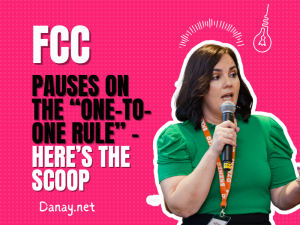
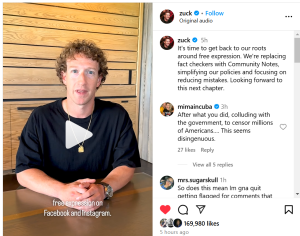
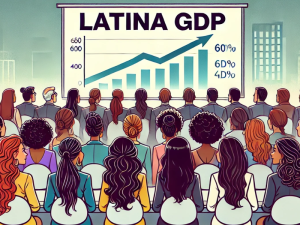

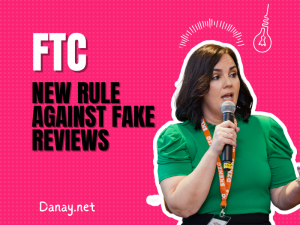
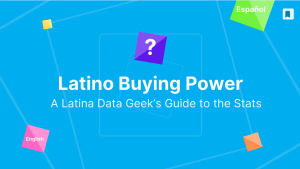
 Noticias Newswire
Noticias Newswire 


43 Responses
This is a really fascinating post. You really helped me understand what is going on with the net neutrality issue. It’s so annoying how the current climate is constantly trying to “roll back” regulations that protect the publics best interest. I hope everything works out for the best.
I heard about net neutrality, but I never really understood it until now. You provided many information in this post that I know why net neutrality is such a big deal.
To be honest, I had no idea about any of this. Thanks for taking the time to explain it to us.
What an interesting read, I didn’t know anything about Net Neutrality before, your post have opened my eyes for some new information!
Wow! This is a powder keg! I am SO interested yet at the same time I need to read this at least once more – maybe twice to really absorb it all. Its not far from any other laws established like those that protect us on airlines – but also infringe on our rights. Tricky areas to say the least and too many shades of grey. On one hand GOOD on another BAD.
To be honest I really need to do some personal research about Net Neutrality before I make a decision. What I do not like is bureaucracies reinterpreting old statutes to make up new rules. I agree that rules might need to be made. But I think that should be done by legal bodies set to make new legislative rules about things that people from past generations never considered.
Thank you for sharing such an informative post. I had done some research on Net Neutrality and you post is a great help. Keep up the good work.
XOXO
Wow this was actually pretty insightful. I didn’t have any idea about this.
I had never heard of net neutrality before but at least now if someone mentions it i’ll have an idea what they are talking about. Thanks for explaining in so much detail
Interesting post, I’d never heard the phrase before. You’ve raised some thought provoking points, I’ll have to read up more on this.
I’ve never even heard of all this. It’s interesting information though. It’s amazing what some companies will block just to make an extra buck. I saw that you mentioned companies fighting for business with their “unlimited plans”. They aren’t really unlimited when you look at it. You get a percentage and after that your speeds drop so dramatically the you can’t seem to use it. It is however, good to have rules. It protects the consumer. I honestly think it should be more regulated. Thank you for sharing this info. It was interesting to learn something new.
This is such an important topic & you’re right, people don’t understand it. Sadly it’s being ripped apart by a money hungry group of billionaires who just want more money … and it will take years to undo the damage.
Wow, I don’t even know how to reply. So much info to absorb first lol. Thank you for explaining all of this because I was totally lost.
Such an informative post. I knew nothing about it at all. literally. Not sure these apply to the UK thought! xx corinne
It really depends what country you are in. Some governments regulate all of the internet, and only allow people to see what they want to see. Also some people aren’t even allowed to use the internet in some countries.
This is very interesting. I was vaguely aware of these things but not the real facts. So many businesses can’t seem to handle their various ethical responsibilities. Everything falls before their need for profit. We need Net Neutrality for this very reason. The banks were left to their own devices and look what they managed to do with mortgages.
This information is so useful! I will share this with my friends and my hubby, they need to read it. Thank you for sharing!
interesting, net neutrality has never occurred to me before
Great info! You’re right, not everyone knows what this all means and what the impacts are. Yet, it affects what we do. The internet is so integrated in our lives, so this is very relevant.
I honestly had no idea about Net Neutrality. Thanks for taking the time to break it down for me
Very interesting info! I found this post helpful and also kind scary! Lol… I don’t always get to hide from the truth. Thank you for educating me!
Interesting!!!! I honestly was one of those who hears about this all the time yet had no idea what it actually was. Glad I know now!
I have N E V E R heard of NET NEUTRALITY. I’m glad that you explained it because I am always interested in learning new things.
So basically it protects consumers and gives them the service that they deserve? I think that’s definitely something that we an benefit from. It’s good that this law exists.
I learned a lot through your post! I’ve never even heard of net neutrality, how interesting!
I’m glad people are talking about it and happy you’re providing a great slab of information to those who may have no idea that this has been going on. I’m no longer in the states, but I did catch wind of the possible changes again. Our net in Canada is super expensive no matter what, there’s not much savings from swapping companies for the most part if you want certain speeds. I try not to complain seeing as it could be worse – I could live somewhere where people have super limited internet freedom or none at all.
I was unaware of the Net Neutrality. Thank you for breaking things down for me! Xx- Doran @HauteBeautyGuide
I had absolutely no idea about this (I’m not remotely technical!) but this post was very informative – thanks.
Wow. This is really interesting. I had heard the term net neutrality before, but had really not understood what it meant. I love learning new things! This is kind of crazy too; I had no idea that this kind of competition was going on in the tech world, I mean not this brand of competition anyway. But it makes sense!
I have never head Net Neutrality before, and thanks for the insights. Its interesting that some big companies decided to block user access to certain programs due to competition and to maximize their profits, and it is more surprising that tech giants support the regulation is for the sake of their own business.
Such a great read to find, very informative! Thanks and I’m sharing this!
Pammy
Fascinating and informative. It’s actually something I wasn’t aware of. Learn something new every day.
XOXO //
I have heard of it and always experience it in real life but I never really thought about it. It usually happens with mobile data as well. Some providers will let you know you’ll have unlimited data access but once you used up a number of GB of data, they’ll slow down your data connection.
This information is very interesting, especially because I was clueless to any of this. I am walking away a little more knowledgable on this topic for sure.
I’ve heard of Net Neutrality before. It’s great to see you sharing this knowledge with others since this is a very important topic for all of us!
xo, Elizabeth
This is a intresting topic.
This really breaks down a topic that is over so many of our heads. Thank you for making it easy to digest and understand.
Wow! Super interesting Danay! I had no idea about any of this and I’m sure it’s a deep topic, but thank you for pointing it out for those of us who were clueless. It’s a complicated world when profit is at the center of it all!
It sure is Carmen 😉
Well I never knew anything about this! I never thought there was so much competition in the web providing business. I also never realized the rules In place. Great article of something I knew absolutely nothing about.
As usual, the world is changing faster than anyone thought and the bureaucrats and regulators can hardly keep up with it. I agree there should be Net Neutrality. I’ve always thought the best way to fuel creative and economic growth is through this sort of support. I understand corporations are trying to protect their interests, but there’s no reason why business can’t adapt to Net Neutrality rules and even thrive, as you mention.
Thank you for sharing this information… never heard about that before, but this post gives a whole picture for us that know less about this things!
What a presentation !!!!…simply superb one